
manual to automatic conversion price uk
With increasing demand for automatic vehicles in the UK, converting manual cars to automatic is gaining popularity. Prices range from £600 to £2,000+, depending on vehicle type and complexity.
Overview of the Conversion Process
Converting a manual car to automatic in the UK involves several key steps. First, the vehicle is assessed to determine its suitability for conversion. This includes checking the engine, gearbox, and electrical systems. Next, the manual transmission is removed and replaced with an automatic transmission system, which may require additional components like a torque converter and sensors. The clutch pedal is typically removed, and the gear lever is replaced with an automatic shifter. Wiring and software updates are necessary to integrate the new transmission with the vehicle’s ECU. Finally, the system is tested to ensure smooth operation. The process is complex and usually requires a professional mechanic, especially for modern vehicles with advanced electronics.
Importance of Understanding the Costs
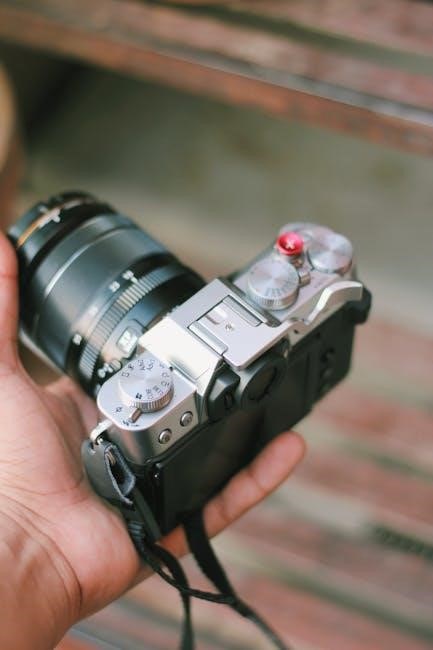
Understanding the costs of converting a manual car to automatic in the UK is crucial for budgeting and decision-making. The total cost can vary significantly, ranging from £600 to £2,000 or more, depending on the vehicle’s make, model, and age. Factors such as the type of automatic transmission, labor costs, and additional components like wiring and software upgrades play a major role. DIY conversions are cheaper but require mechanical expertise, while professional services ensure reliability but at a higher expense. It’s essential to research and compare quotes from reputable garages to avoid unexpected expenses. Additionally, considering the long-term benefits, such as improved driving comfort and potential resale value, helps in making an informed decision.
Relevance of the Topic in the UK Market
The topic of manual to automatic conversion is highly relevant in the UK, where there is a growing preference for automatic vehicles. With more drivers opting for comfort and ease, especially in urban areas, the demand for automatic cars is rising. Additionally, the increasing popularity of electric vehicles, which are typically automatic, further fuels this trend. The UK market also sees a significant number of manual vans being converted to automatic to meet specific needs, particularly for drivers with certain disabilities or those seeking convenience. Understanding the costs and processes involved in such conversions is essential for consumers and businesses alike, making this topic a key area of interest in the UK automotive sector.
Why Convert a Manual Car to Automatic?
Converting a manual car to automatic offers enhanced comfort, reduced clutch wear, and easier urban driving, making it ideal for those seeking convenience and smoother performance.
Advantages of Automatic Transmission
Automatic transmissions provide a smoother and more convenient driving experience, especially in urban areas with frequent stops. They eliminate the need for manual clutch operation, reducing driver fatigue and wear on clutch components. This makes automatic cars ideal for individuals with mobility challenges or those who prefer a hassle-free commute. Additionally, automatic vehicles often hold their value better in the UK market, where demand is rising. The ease of use also makes automatic cars more accessible to new drivers or those with disabilities, contributing to their growing popularity in the UK.
Disadvantages of Manual Transmission
Manual transmissions require constant driver engagement, which can lead to fatigue, especially in heavy traffic. The clutch pedal and gear shifting demand physical effort, making long commutes tiring. Additionally, manual cars are less accessible to individuals with certain disabilities or mobility issues. The frequent use of the clutch can also lead to wear and tear on components like the clutch itself, gearbox, and flywheel, increasing maintenance costs over time. Furthermore, the declining popularity of manual vehicles in the UK market may affect resale value, as more drivers opt for automatic convenience. These factors contribute to the growing interest in converting manual cars to automatic in the UK.
Specific Needs in the UK
In the UK, the demand for automatic vehicles is rising, driven by urbanization and an aging population. Many drivers seek comfort and ease, especially in congested city driving. Additionally, individuals with mobility challenges or disabilities often require automatic vehicles, as manual transmissions can be difficult to operate. The UK’s high cost of living and busy roads make automatic conversions appealing for those wanting to avoid the hassle of manual gear shifting. Furthermore, the availability of more automatic-ready vehicles in the market has spurred interest in conversions, particularly for vans and older models. These factors highlight the growing necessity for manual-to-automatic conversions tailored to UK drivers’ unique needs and preferences.
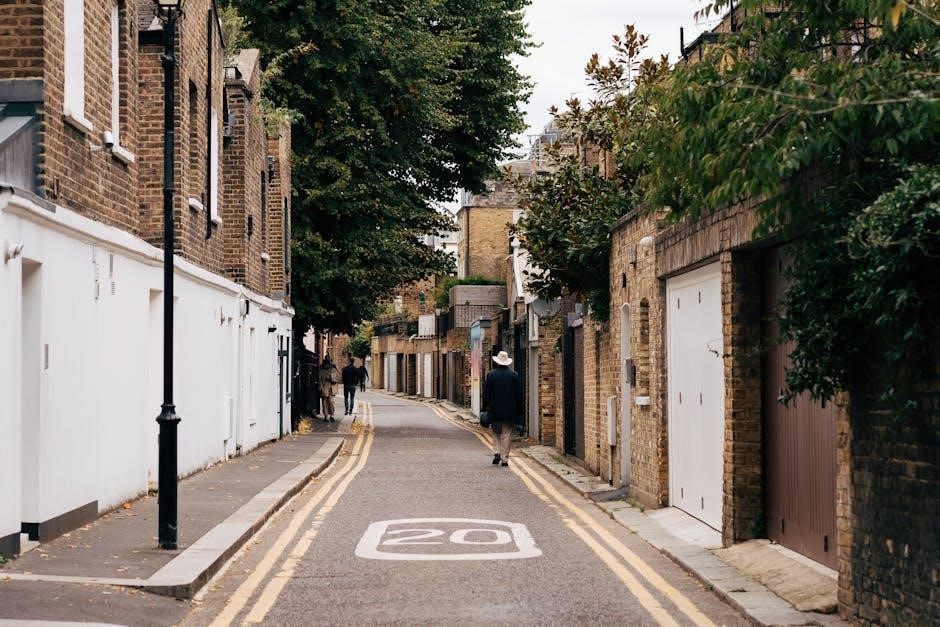
Cost Factors to Consider
Manual to automatic conversion costs in the UK range from £600 to £2,000+, depending on vehicle type and complexity. Parts, labor, and additional wiring/software expenses are key factors.
Parts and Components Required
The conversion from manual to automatic transmission requires several key components. A reconditioned automatic gearbox is essential, costing between £500 to £1,500, depending on the vehicle’s make and model. Additionally, a new torque converter, typically priced around £200 to £500, is necessary for smooth power transmission. The clutch system must be replaced with automatic-specific components, including a flywheel and clutch kit, which can range from £300 to £600. Other necessary parts include an automatic gear lever, wiring harness, and electronic control units (ECUs) to manage the transmission system, adding another £200 to £400. These components ensure the vehicle operates efficiently and safely after conversion.
Labor Costs for the Conversion
Labor costs for converting a manual car to automatic in the UK can vary significantly, typically ranging from £800 to £2,000, depending on the complexity of the job and the mechanic’s expertise. Specialized garages or transmission experts often charge higher rates due to the intricate nature of the work. Factors such as the vehicle’s make, model, and age also influence labor costs, as some systems may require custom adaptations or additional time. DIY conversions are possible but require advanced mechanical skills. For those opting for professional services, it’s advisable to obtain quotes from multiple providers to ensure competitive pricing and quality workmanship.

Additional Expenses (e.g., Wiring, Software)
Beyond parts and labor, additional expenses for a manual-to-automatic conversion in the UK include wiring and software upgrades. Modern automatic transmissions often require advanced electronic control units (ECUs) and compatible wiring harnesses, which can add £300 to £800 to the total cost. Software modifications may also be necessary to ensure the vehicle’s systems communicate effectively with the new transmission. These costs vary depending on the vehicle’s make and model, with luxury or high-performance cars typically requiring more sophisticated solutions. It’s essential to factor these expenses into the overall budget to avoid unexpected financial surprises during the conversion process.
Legal and Regulatory Considerations
Converting a manual to automatic in the UK must comply with DVSA regulations. Ensure the vehicle meets safety and emissions standards, and notify the DVLA post-conversion.
UK Laws on Vehicle Modifications
In the UK, converting a manual car to automatic must comply with the Driver and Vehicle Standards Agency (DVSA) regulations. Vehicle modifications, including transmission changes, must meet strict safety and emissions standards. The Construction and Use Regulations require that any significant alteration to a vehicle does not compromise its roadworthiness. Additionally, the vehicle must pass an MOT test after the conversion. It is also mandatory to notify the DVLA of any major changes to the vehicle’s specifications. Failure to comply with these regulations can result in legal penalties, fines, or even the vehicle being deemed unfit for the road. Proper documentation and adherence to legal guidelines are essential to ensure the conversion is lawful and recognized by authorities.
Insurance Implications
Converting a manual car to automatic in the UK can have significant insurance implications. Insurers must be notified of the modification, as failure to disclose could invalidate the policy. Some insurance providers specialize in modified vehicles, but premiums may increase due to the added complexity and cost of the conversion. Additionally, certain insurers might not cover vehicles with aftermarket automatic transmissions, depending on the type and quality of the conversion. It is crucial to consult with insurance providers before proceeding to ensure the vehicle remains covered and compliant with policy terms. Proper documentation of the conversion and its cost will also be essential for accurate insurance valuation and claims processing.
Vehicle Registration and Documentation
After converting a manual car to automatic in the UK, it is essential to update the vehicle’s registration and documentation. The Driver and Vehicle Licensing Agency (DVLA) must be notified of the modification, as it alters the vehicle’s specifications. The V5 registration document will need to be updated to reflect the change from manual to automatic transmission. Additionally, the vehicle may require a new MOT inspection to ensure compliance with road safety standards. Proper documentation, including receipts and details of the conversion, should be maintained. Failure to notify the DVLA or provide accurate documentation can result in legal consequences. Ensuring all paperwork is in order is crucial for maintaining the vehicle’s legality and avoiding potential fines or penalties.

Technical Aspects of the Conversion
Converting a manual to automatic involves replacing the transmission system, removing the clutch, and integrating electronic control units (ECUs) and wiring. Costs range from £600 to £2,000.
Transmission System Overview
The transmission system is the heart of the conversion process, requiring a detailed understanding of both manual and automatic components. In a manual transmission, the driver controls gear shifts using a clutch and gearstick, while an automatic transmission relies on a torque converter and planetary gears to shift seamlessly. During conversion, the manual gearbox is replaced with an automatic transmission, which includes components like the valve body, solenoid pack, and transmission control module. The torque converter replaces the clutch, ensuring smooth power delivery without manual intervention. This complex swap demands precision to ensure compatibility with the vehicle’s engine and drivetrain, making it a technically challenging process.
Clutch and Gearbox Replacement
Replacing the clutch and gearbox is a critical step in converting a manual to an automatic transmission. The manual clutch is removed entirely, as automatic systems rely on a torque converter instead. The gearbox must be swapped with an automatic transmission unit, which includes a valve body, solenoid pack, and planetary gears. This process requires precise alignment and connection to the engine and drivetrain. Costs for these components vary widely, with reconditioned gearboxes starting around £500 and new units exceeding £2,000. Additional expenses include labor fees, which can range from £300 to £800, depending on the mechanic’s expertise and workshop rates. Ensuring compatibility and proper installation is essential to avoid future mechanical issues.
Electronic Control Units (ECUs) and Wiring
Electronic Control Units (ECUs) and wiring play a vital role in manual to automatic conversions. The ECU must be reprogrammed or replaced to support automatic transmission functionality, ensuring smooth gear shifts and proper torque control. Wiring modifications are necessary to integrate the automatic transmission system with the vehicle’s existing electronics. Costs for ECUs and wiring can range from £300 to £1,000, depending on the vehicle’s make and model. Compatibility issues must be addressed to avoid system malfunctions. Professional installation is highly recommended to ensure proper communication between the ECU, transmission, and other vehicle systems. This step is crucial for achieving reliable performance and safety post-conversion.
Step-by-Step Conversion Process
The process involves assessing the vehicle, procuring parts, and installing the automatic transmission system. Each step requires precision to ensure compatibility and functionality post-conversion.
Assessment of the Vehicle
Assessing the vehicle is the first critical step in the conversion process. This involves evaluating the current manual transmission system, including the gearbox, clutch, and associated components. The mechanic or specialist will inspect the vehicle’s make, model, and year to determine compatibility with an automatic transmission. They will also check for any existing damage or wear that could affect the conversion. Additionally, the assessment will consider the vehicle’s electronic systems, such as the ECU, to ensure proper integration with the new automatic transmission. This step is essential to provide an accurate cost estimate and identify any potential challenges. A thorough assessment ensures the conversion is feasible and aligns with the vehicle’s specifications. Professional evaluation is highly recommended for a smooth and successful conversion process.
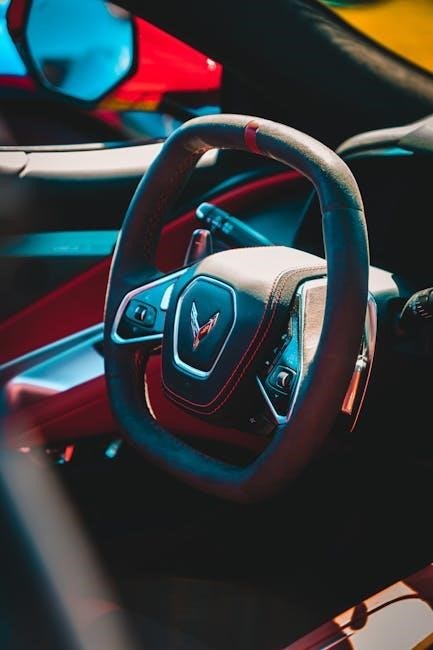
Procurement of Parts
Procuring the right parts is a crucial step in the manual to automatic conversion process. The primary components required include a reconditioned automatic transmission, torque converter, and necessary adapters. Additional parts such as a new clutch, flywheel, and bearings may also be needed, depending on the vehicle. Costs for these parts vary widely, with a reconditioned automatic transmission typically ranging from £600 to £2,000, depending on the vehicle’s make and model. Other components, such as the ECU and wiring harness, can add to the expense. It’s essential to source parts from reputable suppliers to ensure compatibility and reliability. Consulting with a specialist can help identify the exact parts needed, avoiding unnecessary purchases and ensuring a smooth conversion process.
Installation and Testing
The installation and testing phase is the most technically demanding part of the conversion process. A skilled technician will replace the manual gearbox with an automatic transmission, ensuring proper alignment and connection to the engine. The torque converter is fitted, and the transmission fluid is filled. Wiring and electronic control units (ECUs) are connected to ensure smooth communication between the engine and transmission. Post-installation, thorough testing is conducted, including road tests to check gear shifts, acceleration, and braking. Costs for labor and testing vary, typically ranging from £1,000 to £2,500, depending on the vehicle’s complexity and the technician’s expertise. Proper testing ensures the conversion is reliable and performs optimally, making this phase critical to the success of the project.

Case Studies and Real-Life Examples
A Porsche 924 conversion cost £1,500, while a Ford Transit van conversion totaled £2,300, highlighting varying costs based on vehicle type and complexity in the UK.
Successful Conversions in the UK
Several successful manual-to-automatic conversions have been reported in the UK, with costs varying widely. A Porsche 924 owner achieved a smooth transition for £1,500, while a Ford Transit van required £2,300. These cases demonstrate that the process is feasible with the right expertise and parts. Additionally, a Nissan 350Z conversion was completed for £1,800, proving that modern vehicles can also benefit. These examples highlight the importance of assessing each vehicle’s specific needs to ensure a successful and cost-effective conversion. Such real-life successes encourage others to explore this option, especially given the rising demand for automatic vehicles in the UK market.
Lessons Learned from Previous Projects
Previous manual-to-automatic conversion projects in the UK highlight key lessons. First, costs can vary significantly, with DIY conversions starting at £600, while professional installations often exceed £2,000. Second, sourcing genuine parts is crucial, as cheaper alternatives may lead to reliability issues. Third, labor costs are a major factor, with skilled mechanics charging £500-£1,000 for complex installations. Additionally, some vehicles, like the Porsche 924, require custom solutions, increasing expenses. Finally, proper planning and professional expertise are essential to avoid costly mistakes. These insights underscore the importance of thorough research and budgeting before embarking on a conversion project.
Cost Comparisons from Real Cases
Real-world examples in the UK reveal varying costs for manual-to-automatic conversions. A Ford Focus conversion cost £1,800, while a classic car required £2,500 due to custom parts. A van conversion reached £3,000, highlighting higher costs for larger vehicles. DIY projects, like a Nissan Pulsar, were priced at £600-£750, emphasizing cost savings with self-installation. However, professional labor fees often range from £500 to £1,000, depending on complexity. These cases show that costs vary widely based on vehicle type, transmission complexity, and whether the conversion is DIY or professional. While some find the investment worthwhile for convenience, others may reconsider due to high expenses.
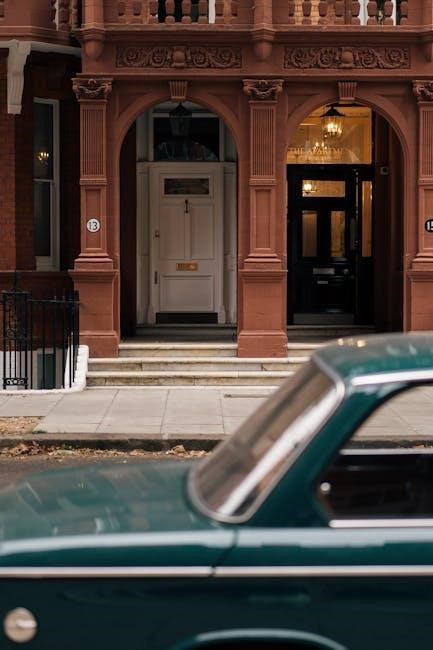
FAQs About Manual to Automatic Conversion
Frequently asked questions about manual to automatic conversion in the UK include costs, time required, and DIY feasibility. Answers vary based on vehicle specifics and labor costs.
Is the Conversion Worth the Cost?
Whether converting a manual car to automatic is worth the cost depends on personal needs and circumstances. For drivers with disabilities or preferences for ease of use, the convenience and comfort of an automatic transmission can justify the expense. Resale value may also increase, especially in the UK where automatic vehicles are less common. However, the cost of conversion, ranging from £600 to £2,000 or more, should be weighed against the benefits. For some, the improved driving experience and reduced fatigue in heavy traffic make it a worthwhile investment. Others may find manual driving more cost-effective and engaging. Ultimately, the decision hinges on individual priorities and budget constraints.
How Long Does the Conversion Take?
The duration of a manual to automatic conversion in the UK varies depending on the vehicle’s make, model, and the complexity of the job. Simple conversions with readily available parts may take around 1-2 weeks, while more complex projects, requiring custom components or advanced wiring, can extend to 4-6 weeks. Experienced mechanics or specialized workshops typically handle the process efficiently, but delays can occur due to part availability or unforeseen issues. It’s essential to consult a professional for an accurate timeline tailored to your vehicle. Factors like the transmission system’s condition and additional modifications, such as ECU reprogramming, also influence the overall time required. Planning ahead and allowing flexibility is recommended for a smooth conversion process.
Can I Perform the Conversion Myself?
While technically possible, performing a manual to automatic conversion yourself is challenging and not recommended unless you have extensive mechanical expertise. Modern vehicles require precise adjustments, specialized tools, and knowledge of complex systems like ECUs and wiring. DIY attempts can lead to costly errors, safety risks, and potential damage to your vehicle. Professional workshops with experienced technicians are better equipped to handle the intricacies of such conversions, ensuring reliability and compliance with UK standards. If you lack the necessary skills and tools, it’s advisable to seek professional assistance to avoid complications and guarantee a successful outcome.
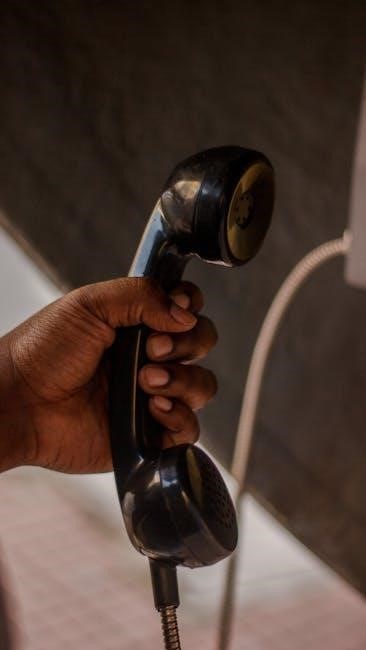
Conclusion and Final Thoughts
Converting a manual car to automatic in the UK offers convenience but requires careful cost consideration and professional expertise for a successful, reliable outcome.
Summary of Key Points
Converting a manual car to automatic in the UK involves significant costs, ranging from £600 to £2,000+, depending on the vehicle type and transmission complexity. Factors such as labor, parts, and additional modifications like wiring and software play a crucial role in determining the final price. While the conversion offers convenience, especially for drivers with specific needs or disabilities, it requires careful planning and professional expertise. The legal and regulatory aspects, including insurance and vehicle registration, must also be considered. Overall, the decision to convert should be based on individual requirements, budget, and long-term benefits, ensuring a smooth and reliable transition to automatic transmission.
Future Trends in Transmission Technology
The automotive industry is shifting toward advanced transmission technologies, with automatic systems becoming more prevalent. Electric vehicles (EVs) and hybrid models are driving this change, as they often feature automatic or continuously variable transmissions (CVT). Dual-clutch transmissions are also gaining popularity for their efficiency and performance. Additionally, the integration of artificial intelligence (AI) in transmission systems is expected to optimize gear shifting and improve fuel efficiency. As demand for automatic vehicles grows in the UK, especially among younger drivers, manufacturers are likely to focus on refining and expanding their automatic transmission offerings. This trend underscores a future where manual transmissions may become less common, with automatics dominating the market.
Final Recommendations for Potential Converters
For those considering a manual to automatic conversion in the UK, thorough research and planning are essential. Assess your vehicle’s compatibility and consult a qualified specialist to ensure a smooth process. Budgeting for parts, labor, and additional costs like wiring and software is crucial. Consider long-term benefits, such as improved accessibility or resale value. Weigh the cost against the convenience and potential health benefits, especially for those with mobility challenges. Finally, ensure all legal and insurance requirements are met to avoid complications post-conversion. Prioritizing quality and compliance will maximize the value of your investment.